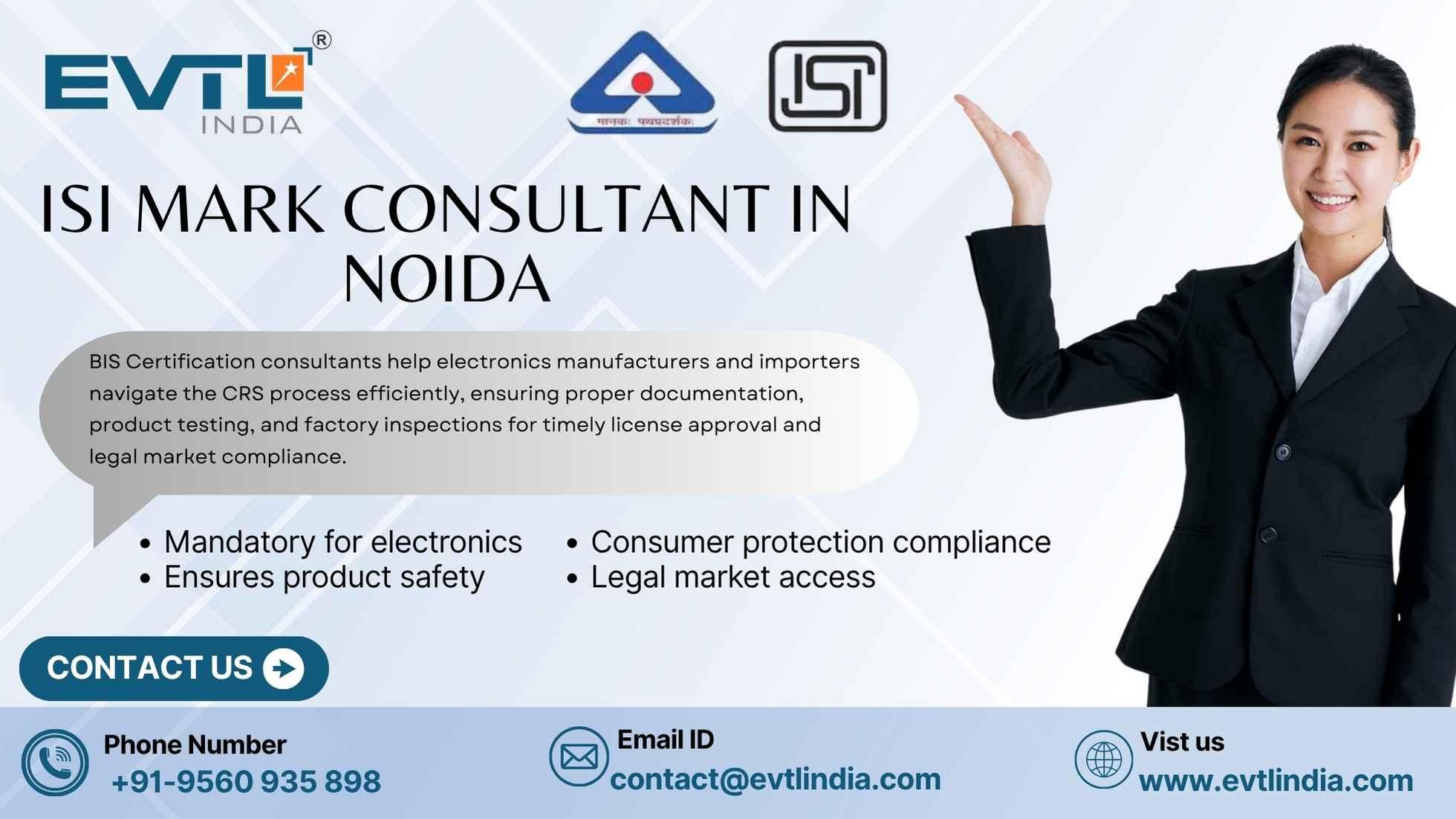Expert Guide to ISI Mark Approval for Indian Manufacturers

In the Indian manufacturing sector today, it is important for products to meet safety and quality standards. The ISI Mark indicates adherence with the Bureau of Indian Standards (BIS), acting as a source of trust and legitimacy for consumers and customers.
In this guide, we provide a complete overview of the ISI Mark certification process in India. We cover everything from registration to professional consulting to help manufacturers navigate their certification in the most efficient way.
The ISI mark is a certification mark given by the Bureau of Indian Standards to manufacturing industries whose products qualify with Indian market standards and regulations. It also tests products for safety, performance, and reliability assurance.
In India, there are certain products that are mandated to obtain this mark in order to be sold in the country. Some of these products include the following:
- Electrical appliances like switches, wires, and cables
- Steel and cement products
- Domestic gas stoves and pressure cookers
- Industrial equipment and construction materials
The Importance of ISI Mark Certification
Achieving the ISI Mark indicates that the product has passed the quality and safety standards set by the government. Some of the benefits this mark may add to the manufacturer include:
- Legal compliance: where the ISI Mark is legally required on certain products before they can be sold on the Indian market.
- Consumer confidence: is built due to the perception that the product is safe and reliable.
- Brand credibility: is increased as the mark signifies compliance and recognition to be high-quality manufacturer.
- Market access: is granted as they can bid on government tenders and big supply contracts.
- Reduced rejection risk: as ISI certified products are unlikely to be rejected by law, and even distributors.
Step-by-Step Process for ISI Mark Certification for Manufacturers
Organizing and adjusting information helps improve applicant experience when applying for the ISI Mark certification. The following outlines the procedure in its entirety.
Step 1: Identify the Applicable Indian Standard
Establishing which Indian Standard (IS) applies to your product comes first. For all product types, BIS has assigned specific IS codes to each.
Step 2: Prepare the Required Documents
Document preparation by manufacturers initiates the certification process. Such documents should include:
- Factory license and manufacturing details
- ISO certification (if available)
- Test reports from BIS-recognized laboratories
- Product specifications and technical details
- Proof of manufacturing facility ownership or lease agreement
Step 3: Submit the Application to BIS
BIS online portal provides access to complete ISI certification applications. Here, all administrative details and documents should be completed and submitted, along with the appropriate fee pertaining to the application.
Step 4: Product Testing
Testing for the product occurs in a BIS approved lab according to the specific Indian Standard. After this, the product aligned with BIS guidelines with respect to quality and safety.
Step 5: Factory Inspection
Assuming the results from the first examination are positive, the next crucial appointment for the BIS is an inspection of the manufacturing sites.
This audit is aimed at establishing production capability, understanding the quality control systems in place, as well as the integration and alignment of the BIS identified needs.
Step 6: Grant of License
Following the successful testing and inspection phases, the BIS proceeds to grant the manufacturer the ISI License. Consequently, the manufacturer’s product packaging and labeling is entitled to carry the ISI Mark.
Step 7: Post-Certification Surveillance
Subsequent to Post Certification Surveillance, BIS is still given the authority to periodically sample and control the production in place to ensure effective compliance to the Standards.
Online Procedure for ISI Mark Registration in India
Manufacturers need to take advantage of the BIS online portal to streamline the ISI Mark registration in India. Registration can now be performed entirely online. The steps are as follows:
- Create an account by registering on the BIS website.
- Identify the product category and the relevant pre-determined Indian Standard.
- Complete the application form along with the information on the entire factory.
- Documents must be uploaded with the petition for registration, along with the certification payment, and the sample of the product for testing must be provided.
- After testing, and with approval on the sample, an audit of the factory can be scheduled.
- The ISI Mark license can be obtained online after approval.
A digitized approach enhances efficiency for manufacturers, helping them save time and easily determine their certification status.
The Importance of an ISI Mark Consultant
The BIS standards, testing requirements, and the subsequent documentation can be overwhelming. This is the moment when the ISI Mark consultant's expertise becomes vital.
A consultant aids manufacturers by:
- Determining product-specific standards.
- Drafting and checking all necessary paperwork.
- Interfacing with BIS and test labs.
- Overseeing the BIS online portal.
- Guaranteeing the certification timeline is adhered to.
Selecting a consultant of good standing minimizes the risk of rejection and assures continued compliance with BIS regulation.
Challenges Faced by Manufacturers When Obtaining ISI Certification
The manufactures face challenges because the system is designed to be orderly. This can include:
- Hiccups from missing paperwork.
- A lack of clearly defined standards.
- Not passing the product test and having to test again.
- Problems with the online BIS system.
All of these challenges can be solved with the help of an experienced ISI Mark consultant, who ensures the certification process is smooth.
Cost and Validity of ISI Mark Certification
Determining the costs of obtaining ISI certification depends on the product category, the cost of product testing and the location of the manufacturing unit. In most contexts, manufacturers need to pay the following:
- BIS application fees
- fees for product testing
- Inspection and surveillance fees
An ISI Mark license is valid for two years. Thereafter, the manufacturer is eligible to renew the license as long as BIS standards and compliance requirements are being met.
Conclusion
EVTL India is one of the leading BIS consultants in India, enabling manufacturers to secure their BIS licences in a timely manner.
The company offers comprehensive support and professional assistance for ISI Mark certification, including product tests, documentation, and final approval.
Whether you are a small business or a large manufacturing company, the ISI Mark certification is critical to your brand reputation improvement, regulatory compliance, and market trust.
With the help of a professional ISI Mark consultant, you can avoid all the hassle of the certification process for manufacturers and complete the registration online smoothly in India.
The ISI Mark certification process demonstrates your commitment to compliance and quality but also provides your customers with trust and loyalty. In the long term, ISI certification will provide benefits to the growth of your business.







